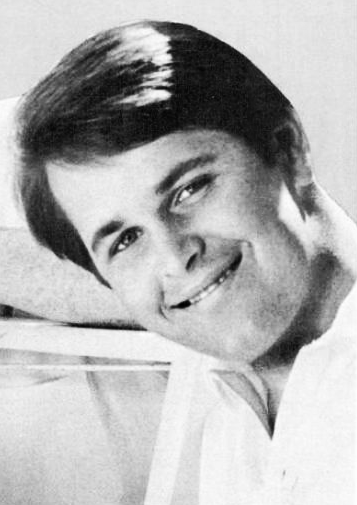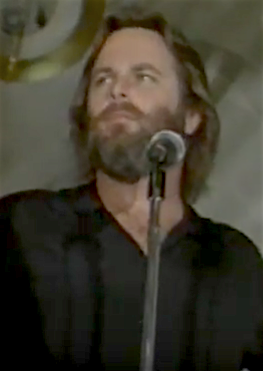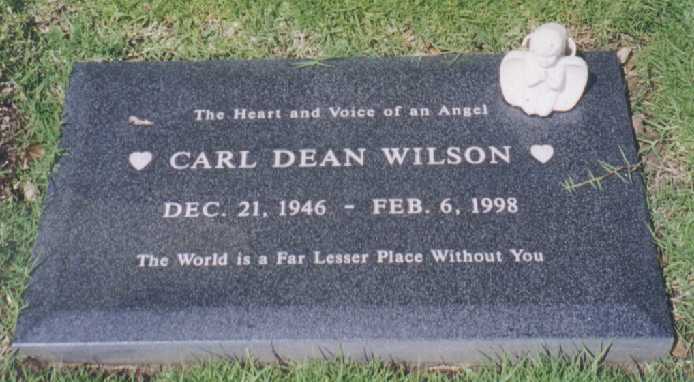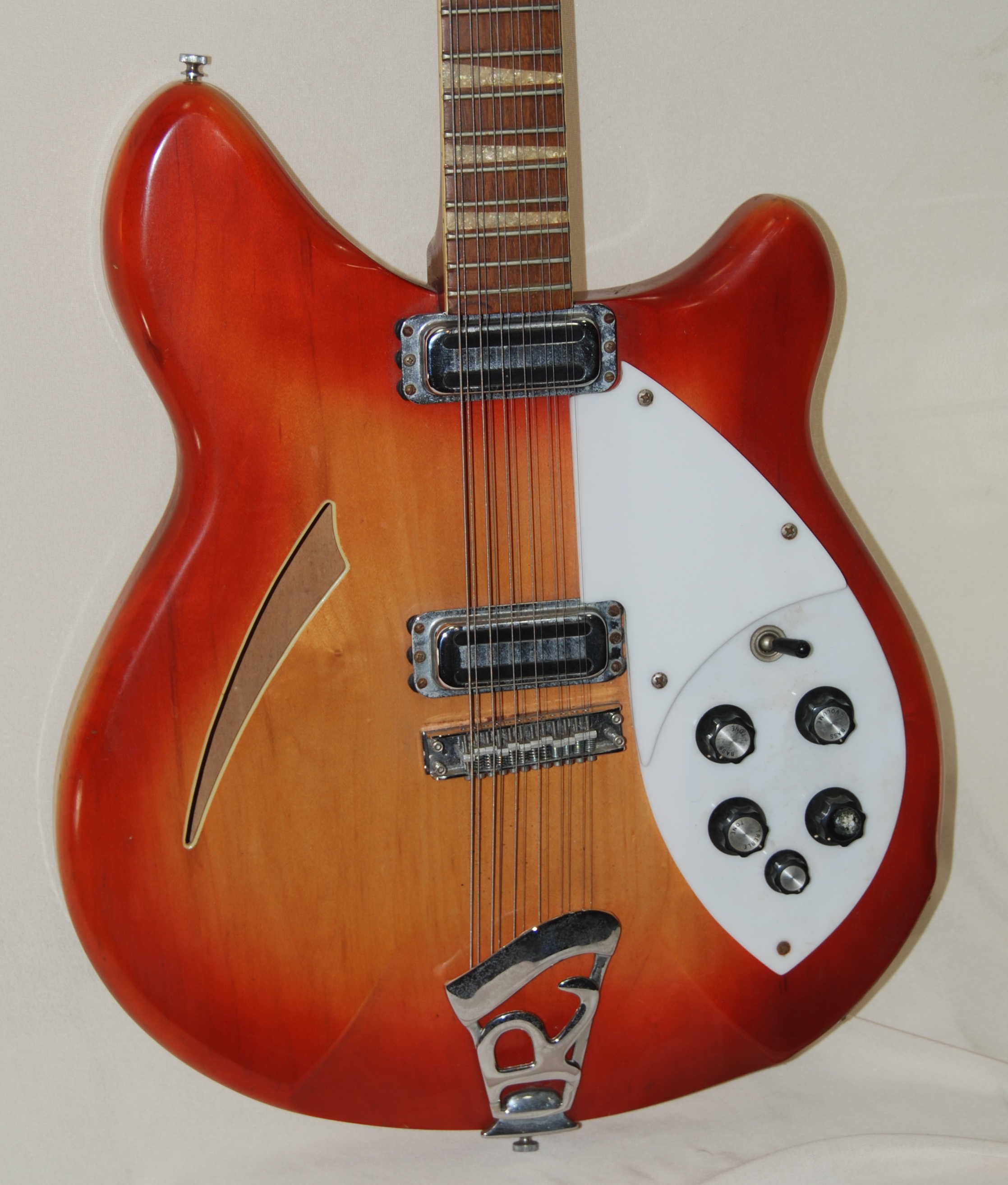1. Early life and background
Carl Wilson's early life in Hawthorne, California, was marked by his family's deep connection to music and the formative experiences that would shape his future career as a musician.
1.1. Early childhood and education
Carl Dean Wilson was born in Hawthorne, California, on December 21, 1946, the youngest of three sons to Audree Neva (née Korthof) and Murry Wilson. His older brothers were Brian and Dennis Wilson, with whom he would later form The Beach Boys. During their childhood, Carl and his brothers frequently experienced verbal and physical abuse from their father, Murry. From his pre-teen years, Carl practiced harmony vocals under the guidance of his brother Brian, who often sang in the family music room with their mother and brothers. Inspired by country star Spade Cooley, Carl asked his parents for a guitar at the age of 12 and began taking lessons. In 1982, Wilson recalled learning from a neighbor, David Lee Marks, who was taking lessons from John Maus. Maus, though only three years older, was considered a "shit-hot guitarist" by the young Carl and David. John Maus later moved to England and became a member of The Walker Brothers. Carl credited Maus with teaching him fingerpicking techniques and strumming styles that he continued to use throughout his career. While Brian focused on perfecting the band's vocal style and keyboard foundation, Carl's distinctive guitar playing, influenced by Chuck Berry, became an early hallmark of The Beach Boys' sound. During high school, Carl also studied the saxophone.
1.2. Early musical activities
As a teenager, Carl's musical talents rapidly developed. When the group's first hit, "Surfin'", broke locally in Los Angeles, Carl was 15 years old. His father and manager, Murry, who had sold his business to support his sons' band, bought Carl a Fender Jaguar guitar. Carl honed his skills as a musician and singer through the band's initial recordings. The early "surf lick" sound featured in "Fun, Fun, Fun" was recorded in 1964 when Carl was 17. In the same year, Carl received his first co-writing credit on a Beach Boys single for the guitar riff and solo in "Dance, Dance, Dance", which he co-wrote with Mike Love and Brian Wilson. By the end of 1964, Carl began diversifying his guitar choices, favoring the 12-string Rickenbacker 360/12 that was also famously used by Roger McGuinn of The Byrds and George Harrison of The Beatles during that era. Music critic Dave Marsh noted in The Rolling Stone Illustrated History of Rock & Roll (1976) that Pete Townshend of The Who expanded on both R&B and rock, "influenced heavily by Beach Boy Carl Wilson."
2. Career in The Beach Boys
Carl Wilson's career with The Beach Boys was extensive and multifaceted, evolving from his foundational role as lead guitarist to becoming a prominent lead vocalist, producer, and eventually, the band's leader during significant periods of transition.
2.1. Guitarist and vocalist
Carl's initial role in The Beach Boys was primarily that of lead guitarist and backing vocalist. His lead vocals were infrequent during the band's first three years. Although all band members played on their early recordings, by 1965, Brian Wilson began to use experienced session musicians for the instrumental tracks to manage the increasingly complex material. However, The Beach Boys themselves were not excluded from recording instrumental tracks and continued to play on certain songs for each album. Unlike other members of the band, Carl frequently played alongside these session musicians. He also recorded his individual guitar leads during the Beach Boys' vocal sessions, often plugging his guitar directly into the soundboard. His distinctive playing can be heard on the introduction to "California Girls", throughout the 1965 album The Beach Boys Today!, and on "That's Not Me" from Pet Sounds.

Following Brian's retirement from touring in 1965, Carl assumed the role of the band's musical director for live performances. Contracts at the time often stipulated that promoters hire "Carl Wilson plus four other musicians." After his acclaimed lead vocal performance on "God Only Knows" in 1966, Carl increasingly became a primary lead vocalist for the band, a role previously dominated by Mike Love and Brian. He sang leads on hit singles such as "Good Vibrations", "Darlin'", and "Wild Honey". His vocals were praised for their beauty, often referred to as "angelic," and he later developed a powerful singing style that compensated for Brian's diminished falsetto in live performances. Starting with the album Wild Honey, Brian specifically requested Carl to become more involved in the production of The Beach Boys' records. Carl also contributed lead vocals to "I Can Hear Music" (1969), "Break Away", "Surf's Up", and "Kokomo" (1988).
2.2. Leadership and production
In 1969, The Beach Boys' rendition of "I Can Hear Music" marked the first track produced solely by Carl Wilson. By this time, he had effectively become the band's in-studio leader, taking on the primary production responsibilities for the majority of their albums released in the early 1970s. Although Carl had composed surf instrumentals for the band in their early days, his songwriting truly flourished with the 1971 album Surf's Up, for which he composed "Long Promised Road" and "Feel Flows", with lyrics provided by the band's then-manager Jack Rieley. Carl considered "Long Promised Road" to be his first truly significant song.

After producing most of Carl and the Passions - "So Tough" (1972) and Holland (1973), Carl's leadership role within the band somewhat diminished. This was partly due to Brian Wilson's brief public reemergence and partly because of Carl's own struggles with substance abuse. For L.A. (Light Album) (1979), Carl contributed four songs, including "Good Timin'", which he had co-written with Brian five years earlier and which became a Top 40 hit in America. Carl's main writing partner in the late 1970s was Geoffrey Cushing-Murray. For Keepin' the Summer Alive (1980), he collaborated with Randy Bachman of the band Bachman-Turner Overdrive. Carl expressed to Michael Feeney Callan, writer-director of the 1993 RTÉ documentary The Beach Boys Today, that Bachman was his favorite writing partner because "he rocked, and I love to rock."
2.3. Songwriting contributions
Carl Wilson's songwriting contributions to The Beach Boys evolved over his career, starting with instrumental pieces and growing into more complex compositions. He wrote or co-wrote numerous songs for the band, including:
- "Surf Jam" from Surfin' U.S.A. (1963)
- "Shut Down, Part II" from Shut Down Volume 2 (1964)
- "Carl's Big Chance" (with Brian Wilson) from All Summer Long (1964)
- "Dance, Dance, Dance" (with Brian Wilson, Mike Love) from The Beach Boys Today! (1965)
- "How She Boogalooed It" (with Mike Love, Bruce Johnston, Al Jardine) from Wild Honey (1967)
- "Friends" (with Brian Wilson, Dennis Wilson, Al Jardine) from Friends (1968)
- "Be Here in the Mornin'" (with Brian Wilson, Dennis Wilson, Al Jardine, Mike Love) from Friends (1968)
- "When a Man Needs a Woman" (with Brian Wilson, Dennis Wilson, Al Jardine, Steve Korthof, Jon Parks) from Friends (1968)
- "I Went to Sleep" (with Brian Wilson) from 20/20 (1969)
- "It's About Time" (with Dennis Wilson, Al Jardine, Bob Burchman) from Sunflower (1970)
- "Our Sweet Love" (with Brian Wilson, Al Jardine) from Sunflower (1970)
- "Feel Flows" (with Jack Rieley) from Surf's Up (1971)
- "Long Promised Road" (with Jack Rieley) from Surf's Up (1971)
- "All This Is That" (with Mike Love, Al Jardine) from Carl and the Passions - "So Tough" (1972)
- "The Trader" (with Jack Rieley) from Holland (1973)
- "Leaving This Town" (with Mike Love, Ricky Fataar, Blondie Chaplin) from Holland (1973)
- "River Song" (with Dennis Wilson) from Pacific Ocean Blue (1977)
- "Rainbows" (with Dennis Wilson, Stephen Kalinich) from Pacific Ocean Blue (1977)
- "Good Timin'" (with Brian Wilson) from L.A. (Light Album) (1979)
- "Full Sail" (with Geoffrey Cushing-Murray) from L.A. (Light Album) (1979)
- "Angel Come Home" (with Geoffrey Cushing-Murray) from L.A. (Light Album) (1979)
- "Goin' South" (with Geoffrey Cushing-Murray) from L.A. (Light Album) (1979)
- "Keepin' the Summer Alive" (with Randy Bachman) from Keepin' the Summer Alive (1980)
- "Livin' with a Heartache" (with Randy Bachman) from Keepin' the Summer Alive (1980)
- "It's Gettin' Late" (with Myrna Smith, Robert White Johnson) from The Beach Boys (1985)
- "Maybe I Don't Know" (with Myrna Smith, Steve Levine, Julian Stewart Lindsay) from The Beach Boys (1985)
- "Where I Belong" (with Robert White Johnson) from The Beach Boys (1985)
- "Beach Boy Stomp (A.K.A. Karate)" from Lost & Found (1961-62) (1991)
- "Our Team" (with Brian Wilson, Dennis Wilson, Al Jardine, Mike Love) from Good Vibrations: Thirty Years of The Beach Boys (1993)
- "Tune X" from The Smile Sessions
- "Sail Plane Song" (with Brian Wilson) from I Can Hear Music: The 20/20 Sessions (2018)
- "Loop de Loop" (with Brian Wilson, Al Jardine) from Feel Flows (album) (2021)
- "This Is Elvis" (recorded 1980, non-album song released 2015)
3. Solo career and collaborations
Carl Wilson's musical endeavors extended beyond The Beach Boys, encompassing a solo career and numerous collaborations with other artists.
3.1. Solo albums and singles
By the early 1980s, The Beach Boys faced internal disarray and musical stagnation, with the band splitting into different factions. Frustrated by the group's slow pace in recording new material and their reluctance to rehearse, Carl Wilson took a leave of absence in 1981. He swiftly recorded and released his first solo album, Carl Wilson, which largely comprised rock and roll songs co-written with Myrna Smith-Schilling, a former backing vocalist for Elvis Presley and Aretha Franklin, and the wife of Wilson's manager at the time, Jerry Schilling. The album briefly appeared on the charts, and its second single, "Heaven", reached the top 20 on Billboard's Adult Contemporary chart. Wilson embarked on a solo tour to promote the album, becoming the first member of The Beach Boys to pursue a solo venture. Initially, Wilson and his band played at clubs such as The Bottom Line in New York City and the Roxy in Los Angeles. He then joined the Doobie Brothers as an opening act for their 1981 summer tour.

Wilson recorded a second solo album, Youngblood, in a similar style. However, by the time of its release in 1983, he had rejoined The Beach Boys. Although Youngblood did not chart, a single from the album, "What You Do To Me", penned by John Hall, peaked at number 72 on the Billboard Hot 100, making Wilson the second Beach Boy to have a solo single on that chart. The song also entered the top 20 on Billboard's Adult Contemporary chart. Wilson frequently performed "What You Do To Me" and "Rockin' All Over the World" (from Youngblood), as well as "Heaven" from his 1981 album, during Beach Boys' concerts in the 1980s. "Heaven" was consistently announced as a tribute to his brother Dennis Wilson, who tragically drowned in December 1983.
3.2. Guest appearances and other projects
As a producer and vocalist, Carl's work extended beyond The Beach Boys. Throughout the 1970s, he produced records for other artists, including Ricci Martin (son of Dean Martin) and the South African group The Flames, two members of whom later temporarily joined The Beach Boys' lineup. He lent his backing vocals to numerous recordings, including Chicago's hits "Baby, What a Big Surprise" and "Wishing You Were Here" (the latter with Al Jardine and his brother Dennis), Elton John's "Don't Let the Sun Go Down on Me" (with Bruce Johnston), David Lee Roth's hit cover of "California Girls", Warren Zevon's "Desperados Under the Eaves", and the Carnie/Wendy Wilson holiday track "Hey Santa!" Carl also recorded a duet with Olivia Newton-John, titled "You Were Great, How Was I?", for her 1985 studio album, Soul Kiss, though it was not released as a single. Carl befriended and gave guitar lessons to Alex Chilton when The Box Tops toured with The Beach Boys.
In the 1990s, he recorded material with Gerry Beckley and Robert Lamm, which was later released posthumously as the album Like a Brother in 2000. He also participated in the Don Was-led recordings of Brian Wilson's songs "Soul Searchin'" and "You're Still a Mystery," which were initially conceived for a canceled Brian Wilson/Beach Boys album.
4. Personal life and beliefs
Carl Wilson's personal life was marked by his family relationships, his spiritual journey, and a notable stance as a conscientious objector during a tumultuous period in American history.
4.1. Family and married life
Carl Wilson was married twice. His first marriage was to Annie Hinsche, the sister of frequent Beach Boys sideman Billy Hinsche. With Annie, he had two sons. During the period of his and Annie's marital difficulties, Carl wrote "Angel Come Home," which, according to co-writer Geoffrey Cushing-Murray, expressed Wilson's grief over being separated from his wife due to The Beach Boys' incessant touring. His second marriage was in 1987 to Gina Martin, daughter of actor and singer Dean Martin. Gina accompanied Carl on all subsequent tours, and their marriage lasted until his death. Carl was the son of Murry Wilson and the younger brother of Brian and Dennis Wilson. He was also the first cousin once removed of Mike Love, and the brother-in-law of Dean Paul Martin (Gina's brother) and Billy Hinsche (Annie's brother). Carl's death in 1998 occurred just two months after the passing of his mother, Audree Wilson.
4.2. Conscientious objection and spiritual beliefs
During the Vietnam War, Carl Wilson declared himself a conscientious objector and refused the draft into the American military. This stance reflected his deeply held personal beliefs. By 1988, Wilson had become an ordained minister in the Movement of Spiritual Inner Awareness (MSIA), a religious corporation. His spiritual involvement was an important aspect of his life. Wilson also had an Irish Setter named Shannon, whose death deeply affected him and inspired the emotional 1976 hit song "Shannon" by Henry Gross.
5. Death
Carl Wilson became ill at his vacation home in Hawaii in early 1997. He was subsequently diagnosed with lung cancer and began chemotherapy treatments. He had been a smoker since his early teens. Despite his illness and ongoing treatments, he continued to perform and sing with The Beach Boys throughout their entire summer tour, completing it in the autumn of 1997.
Wilson died of lung cancer in Los Angeles on February 6, 1998, at the age of 51, surrounded by his family. His passing occurred just two months after the death of his mother, Audree Wilson. He was interred at Westwood Village Memorial Park Cemetery in Los Angeles. Following Carl's death, Al Jardine announced his departure from The Beach Boys' touring lineup, which contributed to the band entering a de facto state of fragmentation, having lost a crucial pillar. Four months after Carl's death, his brother Brian Wilson released his solo album Imagination, which included a tribute song titled "Lay Down Burden."

6. Legacy and assessment
Carl Wilson's contributions left an enduring impact on music, particularly through his pivotal role in The Beach Boys and his posthumous recognition.
6.1. Musical influence
Carl Wilson's musical influence is significant, especially through his guitar playing and vocal work with The Beach Boys. His early Chuck Berry-esque guitar style became an identifiable trademark of the band's sound. He was one of the few band members who frequently played alongside the experienced session musicians employed during the group's critical and commercial peak in the mid-1960s, ensuring his guitar work was central to their recordings. His clear, powerful, and often angelic vocals on hits like "God Only Knows," "Good Vibrations," and "I Can Hear Music" defined a significant part of The Beach Boys' vocal identity, especially as Brian Wilson's involvement in lead vocals diminished. He was also noted for developing a "power singing" style that provided a new vocal dimension for the band in later years. In 2007, Carl Wilson was ranked 20th in Q Magazine's list of the "100 Greatest Singers" in history.
6.2. Posthumous recognition
Carl Wilson was inducted into the Rock and Roll Hall of Fame as a member of The Beach Boys in 1988. His recordings and performances have continued to be released posthumously. The Beckley-Lamm-Wilson album, Like a Brother, which he recorded with Gerry Beckley and Robert Lamm, was finally released in 2000. Carl's late recordings have also appeared on other projects; for instance, Brian Wilson's 2004 album Gettin' in Over My Head features Carl's vocal from the unreleased Beach Boys song "Soul Searchin'," with new backing vocals recorded by Brian. The original Beach Boys version of "Soul Searchin'," sourced from a canceled attempt at a new Beach Boys album in late 1995, was eventually released in the Made in California (2013) box set. This box set also included another 1995 track titled "You're Still a Mystery," featuring Carl in the vocal blend. In 2010, bandmate Al Jardine released his first solo album, A Postcard From California, which includes a similarly reconstructed track, "Don't Fight The Sea", featuring one of the last vocals Carl recorded. Carl's voice can also be heard on the continuous stream of Beach Boys archival releases, most notably as a central voice in the November 2011 release of The Smile Sessions. During The Beach Boys 50th Anniversary Reunion Tour, a segment of the show was dedicated to the memories of Dennis and Carl. The band harmonized with isolated vocal tracks of Carl performing "God Only Knows" and Dennis singing "Forever," while images of the Wilson brothers were projected on a large screen behind the band onstage.
7. Equipment
Carl Wilson utilized a variety of musical instruments throughout his career, primarily guitars and amplifiers, which contributed to his distinctive sound.

Guitars
- Kay single cutaway acoustic - with pickup added
- Fender Stratocaster - Sunburst
- Fender Jaguar - Olympic white
- Rickenbacker 360/12 old style - Fireglo
- Rickenbacker 360/12 new style - Fireglo
- Fender Electric XII - Olympic white
- Guild Starfire VI
- Fender Telecaster - Natural with Bigsby Tremolo
- Gibson ES-335 Custom - Blonde with Bigsby Tremolo (this model later became his trademark in the 1970s and beyond, sometimes with an ES-355 neck grafted on)
- Fender Stratocaster - Olympic white
- Epiphone Riviera 12-string - Tobacco Sunburst with Gibson neck
Though he was left-handed for writing, Carl always played right-handed guitars.
Bass
- Hofner copy
Carl also played other instruments on certain songs or during live performances. From 1968 to 1969, he occasionally played drums during live shows or TV appearances when Dennis Wilson took on lead vocals. For songs like "Long Promised Road," "Feel Flows," and "All This Is That," he played keyboards live. In the early 1970s, during live performances of "Good Vibrations," he would play the bass riff while singing.
Amplifiers
- Fender Dual Showman - blonde with Outboard Spring Reverb Unit
- Fender Dual Showman - black
- Fender Bandmaster
- Fender Bassman
- Fender Twin Reverb
8. Discography
This discography lists Carl Wilson's solo albums and singles, as well as significant recordings with The Beach Boys where he had a prominent role.
Albums
| Year | Album details | Chart positions |
|---|---|---|
| US | ||
| 1981 | Carl Wilson
|align="center"|185 | |
| 1983 | Youngblood
|align="center"|- | |
| 2000 | Like a Brother (with Gerry Beckley and Robert Lamm)
|align="center"|- | |
Singles
| Date | Title | Album | Chart positions | |
|---|---|---|---|---|
| US | AUS | |||
| March 1981 | "Hold Me" / "Hurry Love" | Carl Wilson | - | - |
| June 1981 | "Heaven" / "Hurry Love" | 107 | - | |
| March 1983 | "What You Do To Me" / "Time" | Youngblood | 72 | 98 |
| July 1983 | "Givin' You Up" / "It's Too Early to Tell" | - | - | |
| September 2015 | "This Is Elvis" | non album song | - | - |